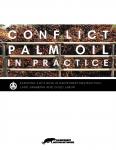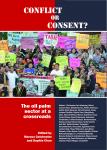
Deforestation, REDD and Takamanda National Park in Cameroon - a Case Study
09 Jul 2014
While focusing in particular on the German financing of rainforest protection in Cameroon, this report also covers the broader issue of how Cameroon’s forest policies are shaped by the REDD process. It takes a case study approach, examining the way such forest protection policies impact on local communities by focusing in on the specific example of those communities whose land has been overlaid by the Takamanda National Park.













